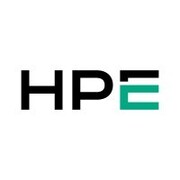
Best Cloud Management Platforms 2026
What is a Cloud Management Platform? A cloud management suite is focused on providing information about cloud computing systems. These tools provide a degree of administrative control over public, private, and hybrid clouds. Cloud management suites provide businesses with scalability and flexibility over their cloud environments. A cloud management suite operates above your infrastructure to automatically run and organize your operations and infrastructure. The purpose of the cloud management ...
We’ve collected videos, features, and capabilities below. Take me there.
All Products
Videos for Cloud Management
Learn More about Cloud Management Software
What is a Cloud Management Platform?
A cloud management suite is focused on providing information about cloud computing systems. These tools provide a degree of administrative control over public, private, and hybrid clouds. Cloud management suites provide businesses with scalability and flexibility over their cloud environments.
A cloud management suite operates above your infrastructure to automatically run and organize your operations and infrastructure. The purpose of the cloud management suite is to gather a business’ tools, operations, and services and bundle them into an all-in-one operation in the business environment.
The benefit of cloud management platforms is that they provide self-service capabilities to users who wish to access a public or private cloud, review available cloud instances, or create new ones.
For businesses, cloud management suites provide three key components: self-service capabilities, automated workflow, and cloud analysis. Cloud management platforms give businesses a common view across all of their cloud resources which allows them to monitor internal and external cloud services.
Cloud management tools have become increasingly important as IT tries to balance security, compliance, and budgetary concerns with the business innovation brought about by self-service provisioning of so-called shadow IT. With a transparent view of all cloud services within the business, organizations are able to effectively and efficiently monitor all their data, information, and services from one centralized platform.
Cloud Management Platforms Features & Capabilities
For businesses, cloud management suites provide a variety of features and capabilities. These are the most common across platforms:
- Support for different cloud types, such as public, private, and hybrid clouds
- Support for creation and provisioning of new objects and the removal of unnecessary objects, like servers, storage, and/or apps.
- Reports on uptime, response time, latency, etc. with a drill-down dashboard
- Ability to monitor whole networks or individual VM’s
- Ability to monitor security and regulation compliance of data and services such as audits and service level agreements
- Data protection and encryption
Cloud Management Platform Comparison
When shopping for cloud management suites, businesses should consider the following aspects:
Automation Capabilities: How well can the cloud management platform automate workflows and lower human intervention? For businesses, cutting costs is the most important. If business operations can be automated and don’t need human oversight, they’ll want a cloud management package that automates and maintains as much of their data and services as possible.
Pricing Models: How many features and services is the business looking for? Cheaper cloud management suites provide less support and automation, while more expensive models offer more. If a business operates on a large scale with many repetitive daily operations, a more expensive model with more features and automation may better fit its needs. While a smaller business tends to run a smaller operation with less needs and lower budgets, it would benefit from a cheaper and more hands on software.
Scalability: How well can the cloud management platform scale up or down depending on the business's needs? If a business has a certain period where data and service volumes for data and operations, it’ll want the ability to be sized up for those larger flows of operation, but during slower times it’ll also want the ability to scale down.
Ease of Use: How well does the platform integrate with other operating systems and programs businesses’ are working with? Businesses may utilize many different operating systems such as Windows and Linux. The ability to integrate a CMS into these different platforms can be an important factor for many medium to large businesses.
Pricing Information
Many cloud management suites are priced based on a percentage of spend or charge you a variable per-VM fee. Some other vendors charge a per-year flat-fee pricing based only on your public cloud spend. SMB systems typically cost between $25 to $7,000 / year, and there are also some open-source systems available. The large variance between pricing factors in size of cloud management suites services, support features, and integration capabilities. Enterprise systems start in the region of $25,000 / year and can scale to $100,000 or more depending on the number of VMs. Most vendors will also provide a trial period to test their services as well before committing to a






















